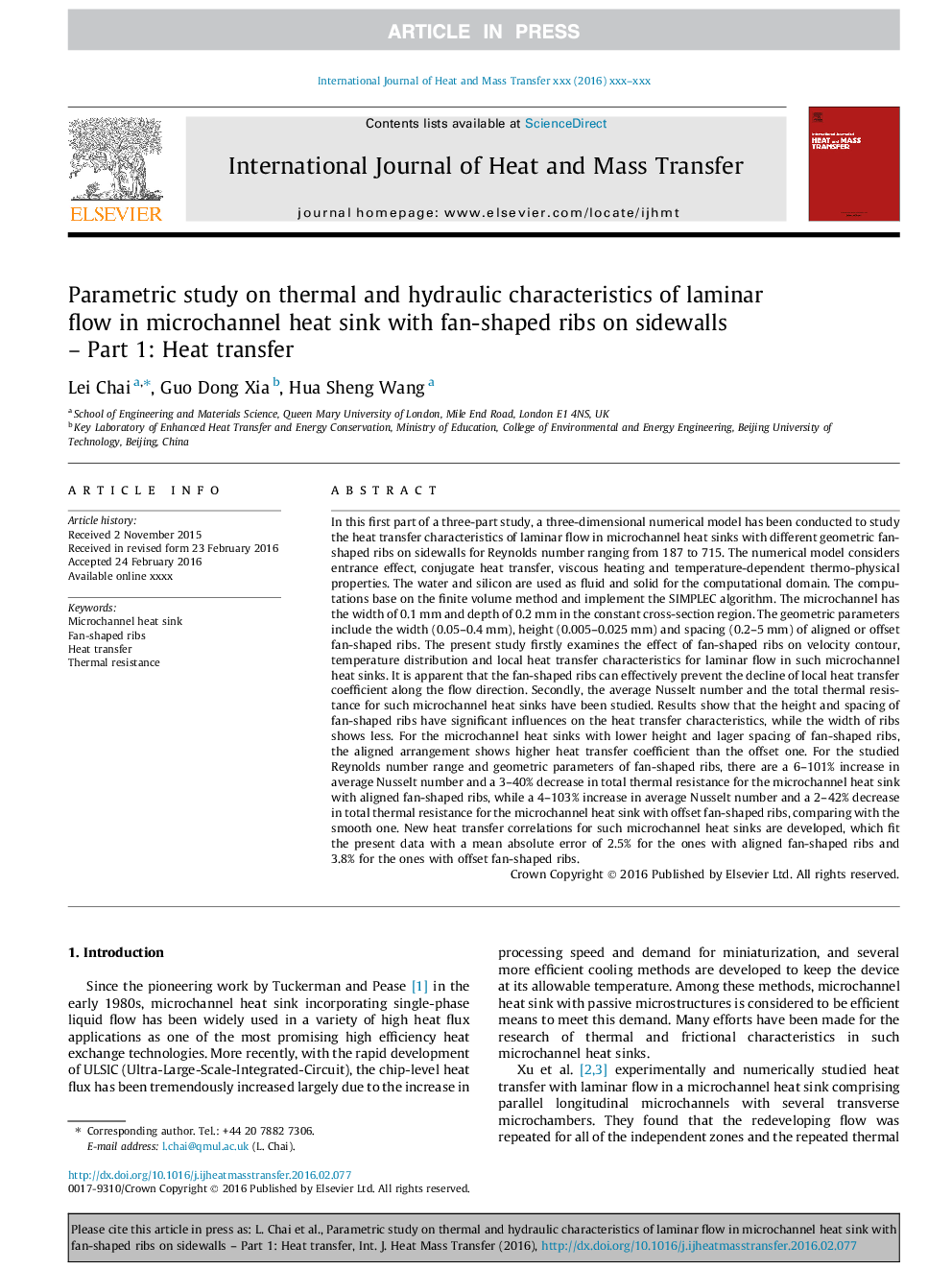| Article ID | Journal | Published Year | Pages | File Type |
|---|---|---|---|---|
| 7055848 | International Journal of Heat and Mass Transfer | 2016 | 12 Pages |
Abstract
In this first part of a three-part study, a three-dimensional numerical model has been conducted to study the heat transfer characteristics of laminar flow in microchannel heat sinks with different geometric fan-shaped ribs on sidewalls for Reynolds number ranging from 187 to 715. The numerical model considers entrance effect, conjugate heat transfer, viscous heating and temperature-dependent thermo-physical properties. The water and silicon are used as fluid and solid for the computational domain. The computations base on the finite volume method and implement the SIMPLEC algorithm. The microchannel has the width of 0.1Â mm and depth of 0.2Â mm in the constant cross-section region. The geometric parameters include the width (0.05-0.4Â mm), height (0.005-0.025Â mm) and spacing (0.2-5Â mm) of aligned or offset fan-shaped ribs. The present study firstly examines the effect of fan-shaped ribs on velocity contour, temperature distribution and local heat transfer characteristics for laminar flow in such microchannel heat sinks. It is apparent that the fan-shaped ribs can effectively prevent the decline of local heat transfer coefficient along the flow direction. Secondly, the average Nusselt number and the total thermal resistance for such microchannel heat sinks have been studied. Results show that the height and spacing of fan-shaped ribs have significant influences on the heat transfer characteristics, while the width of ribs shows less. For the microchannel heat sinks with lower height and lager spacing of fan-shaped ribs, the aligned arrangement shows higher heat transfer coefficient than the offset one. For the studied Reynolds number range and geometric parameters of fan-shaped ribs, there are a 6-101% increase in average Nusselt number and a 3-40% decrease in total thermal resistance for the microchannel heat sink with aligned fan-shaped ribs, while a 4-103% increase in average Nusselt number and a 2-42% decrease in total thermal resistance for the microchannel heat sink with offset fan-shaped ribs, comparing with the smooth one. New heat transfer correlations for such microchannel heat sinks are developed, which fit the present data with a mean absolute error of 2.5% for the ones with aligned fan-shaped ribs and 3.8% for the ones with offset fan-shaped ribs.
Related Topics
Physical Sciences and Engineering
Chemical Engineering
Fluid Flow and Transfer Processes
Authors
Lei Chai, Guo Dong Xia, Hua Sheng Wang,
